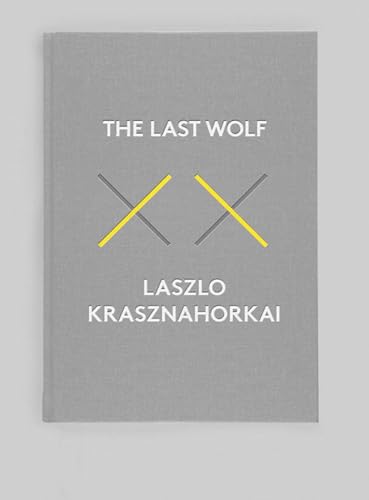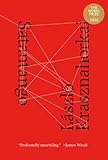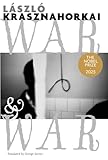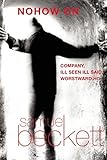
Gyula and Khust and Kapušany. There’s something about the sodden, crumbling brick and cinderblock-scape of eastern European towns that I find irresistible. I’m arrested by the desperate beauty of these places: the wrecked medieval castle on the outskirts; the main street with its waterstained two-story layer cake structures in fading pastel pinks and butterscotches; inexpert patching where entropy or mortar shells have left their mark; squat cubical huts slathered in oatmeal stucco. The inevitable Erste Bank. The EURO-MODA secondhand shop. The bad pastry shop. The bad baguette sandwich shop. The Všetko! One Euro! shop. The gatherings of Roma. The improbable Cadillac Escalades of the nouveau-riche wedged into too-small parking.
For me, the allure of these towns is matched only by the pain undergirding them. I wish I was capable of enjoying a less complicated kinship with these places. Just a tourist with no plans of hanging around—here for the halušky and a few somber snapshots at the family boneyard. But like the region where my family name adorns villages and ancestral mansions, my better days are likely behind me. Like them, I am running out of time. Actuarial irrefutabilities are at work; senescence is taking chips out of me on a daily basis despite my plans, my hopes, and the people who depend on me.
 For László Krasznahorkai, the 2015 Man Booker International laureate and stalwart-in-translation of the New Directions stable, these locales, or ones like them, comprise the greater part of his published fiction. Over the last dozen years or so, New Directions has released a mini-torrent of Krasznahorkai—seven titles by this soft-spoken Hungarian author whose debut, Satantango, first hit shelves in 1985. What’s the fascination with this author, a chronicler of the detritus of failed collective policies, inebriation, madness, faithlessness, and spiritual asphyxia?
For László Krasznahorkai, the 2015 Man Booker International laureate and stalwart-in-translation of the New Directions stable, these locales, or ones like them, comprise the greater part of his published fiction. Over the last dozen years or so, New Directions has released a mini-torrent of Krasznahorkai—seven titles by this soft-spoken Hungarian author whose debut, Satantango, first hit shelves in 1985. What’s the fascination with this author, a chronicler of the detritus of failed collective policies, inebriation, madness, faithlessness, and spiritual asphyxia?
Perhaps the sixth and most recent New Directions release, The Last Wolf & Herman, provides a partial answer for those wondering whether or not to read the writer Susan Sontag referred to somewhat hastily as the “contemporary Hungarian master of apocalypse.” The book is a slim volume consisting of two (structurally and functionally, three) related short stories: I. “The Last Wolf” and II. “Herman”—a) “The Game Warden” and b) “The Death of Craft.” Stylistically, the latter two stories represent a more conventional side of Krasznahorkai, but “The Last Wolf”—involving a wolf we never see and a disillusioned German philosophy professor that we see far too much of—is unlike any wolf story you’ve read before.
Befuddled in Berlin, our professor bends an elbow at a local Hauptstrasse watering hole, puzzling out a conundrum: What is preferable—a life marked by futility or a life marked by scorn? Burning a hole in his pocket is a letter outlining a generous job proposal, but the faded scholar is assailed by doubt:
…he can’t have been the one it was intended for, since he wouldn’t have been invited to Extremadura, by this unheard-of foundation, a foundation staffed by people he had never heard of, asking him whether he felt like spending a couple of weeks there writing something about the region…
The sporadically interested bartender does his best to stay alert as time melds for both teller and tale in this account of epistemic hell. But spilling his story brings the professor little relief as truths and half-truths and facts lost and gained in translation slowly peel back the scab of the unrelenting disquiet that there is, despite the substantial sum offered for his services, little to be learned and less to be accomplished in this venture. But chronically broke, the professor accepts the offer.
The mantle he assumes becomes more a calling than a payday, directing him to a distant country, to confront barren wastelands and scour obscure texts in search of a beast that may never have been. We sit with the barman and listen along with him as our itinerant professor endures the generously financed and enthusiastically, if haphazardly, organized junket to Extremadura—Spain? Portugal? Both? Neither?—where the last wolf in the region may or may not have met its end. The professor is a man drowning in myth and metatext and deep suspicion, but contractually bound to codify whatever he might find, real or otherwise.
By story’s end, relentless self-accusation has the good professor lying curled, fetal, in expectation of his inevitable unmasking and the discovery that “it had been a mistake inviting him, and that they’d be taking him back…asking him not to make them look ridiculous again.”
A common misstep when grappling with eastern European writers is to misread these authors’ personal experiences of a life lived under a fractured Communism, their discombobulated personal Marxism, and their more-than-likely agnostic take on organized religion and to conflate these into a catchall label—“political”—as if that were some sort of commendation, or explanation. László Krasznahorkai’s life and work are not spared this broad misconception, James Wood calling him “a more political writer than Beckett” and Margit Koves in Adelphi “…a romantic anti-capitalist of the age of globalization who examines what happens to various forms of art and culture at the time of globalization,” both of which, while accurate, are akin to focusing on a politician’s modest handsize, or a writer’s height.
 To misread Krasznahorkai as merely, or primarily, a political writer is to risk squandering the profoundly personal nature of his stories. More tragically, it is to foist a kind of sloppy activist, and determinately secular métier onto one of contemporary literature’s most sophisticated exponents of the sacred. It is to miss his elegant, if troubling, depiction of the regrettable distance at which the sacred is held from the greater part of contemporary cultural production. With his repeated exploration of the importance of the sacred to life and culture, Krasznahorkai is among the more godly godless authors you’re likely to meet. These, I submit, are what, in a widely publicized quote, W.G. Sebald was hinting at when he said that “Krasznahorkai’s vision rivals that of Gogol’s Dead Souls and far surpasses all the lesser concerns of contemporary writing.”
To misread Krasznahorkai as merely, or primarily, a political writer is to risk squandering the profoundly personal nature of his stories. More tragically, it is to foist a kind of sloppy activist, and determinately secular métier onto one of contemporary literature’s most sophisticated exponents of the sacred. It is to miss his elegant, if troubling, depiction of the regrettable distance at which the sacred is held from the greater part of contemporary cultural production. With his repeated exploration of the importance of the sacred to life and culture, Krasznahorkai is among the more godly godless authors you’re likely to meet. These, I submit, are what, in a widely publicized quote, W.G. Sebald was hinting at when he said that “Krasznahorkai’s vision rivals that of Gogol’s Dead Souls and far surpasses all the lesser concerns of contemporary writing.”
Though lacking his predecessor’s mad religious zeal, like Gogol Krasznahorkai directs his most consistent and pointed critique against a kind of indolence that results in spiritual vacuity, servility to baser human drives, and incurious acquiescence to the pull of a morally and aesthetically baffled culture. Although clearly no fan of conspicuous consumption, his hard appraisal of the same is more than just fashionably provisional snobbery toward rough-grind economics. Rather than limit his focus to the corrupting power of capital, he would have us seek out worth that lies beyond the realm of what is bought, sold, traded, stolen, corroded, and corrupted.
Often cursorily compared to writers like Thomas Bernhard and William Gaddis, Krasznahorkai employs nothing of the former’s self-crippling contempt for the church, and serves as a proper antipode to the latter’s flippant disregard for all things spiritual. His protagonists are not polemical, but confessional. His motif has more in common with Cormac McCarthy’s via negativa to enlightenment, populated by an absent god, human savagery, holy fools, ersatz messiahs, sacred texts, and the unwashed but heroic who are consumed by the task of making things right. But when making things right proves, as it inevitably does, beyond the capacity of a Krasznahorkai protagonist, it is madness, exile, and ruin that follow.


 Audible in the creeping dementia of these central characters —the doctor in Satantango, Korin in War & War, the hapless Valuska in The Melancholy of Resistance, and Herman in “The Game Warden” – are echoes of Samuel Beckett’s crone in Ill Seen Ill Said:
Audible in the creeping dementia of these central characters —the doctor in Satantango, Korin in War & War, the hapless Valuska in The Melancholy of Resistance, and Herman in “The Game Warden” – are echoes of Samuel Beckett’s crone in Ill Seen Ill Said:
Already all confusion. Things and imaginings. As of always. Confusion amounting to nothing. Despite precautions. If only she could be pure figment. Unalloyed. This old so dying woman. So dead. In the madhouse of the skull and nowhere else. Where no more precautions to be taken. No precautions possible. Cooped up there with the rest. Hovel and stones. The lot. And the eye. How simple all then.
What Beckett manages stylistically in brevity and quick-cuts, Krasznahorkai accomplishes via what his long-time translator George Szirtes has described as “a slow lava flow of narrative.” The ancients might have characterized Beckett as melitta—the sting of a solitary bee, repeated a thousand times, and Krasznahorkai as murias—a thousand individual ants moving in a wave. In regard to the latter, this quite consciously nurtured device of the paragraph- or page- or chapter- or story-long sentence is on full display in “The Last Wolf”—a 50-page story comprised of exactly one sentence.
…how could he explain how long ago he had given up the idea of thought, the point at which he first understood the way things were and knew that any sense we had of existence was merely a reminder of the incomprehensible futility of existence, a futility that would repeat itself ad infinitum, to the end of time and that, no, it wasn’t a matter of chance and its extraordinary, inexhaustible, triumphant, unconquerable power working to bring matters to birth or annihilation, but rather the matter of a shadowy demonic purpose…
George Szirtes’s fluid translation of “The Last Wolf” maintains this feel of textual surge, of ebb and flow, and remarkably, of the parallel poetic structure characteristic of the ancient Hebrew ketuvim. The above citation concludes—if that is the right word—below. An apodosis to the protasis ending in a deep exhale in a literary selah of sorts.
…something embedded deep in the heart of things, in the texture of the relationship between things, the stench of whose purpose filled every atom, that it was a curse, a form of damnation, that the world was the product of scorn, and God help the sanity of those who called themselves thinkers…
It is this kind of writing that, even in his short stories, reveals Krasznahorkai as a writer obsessed in the parsing of the invisible. Parsing it, and then rendering it in a philosophical relation to the visible by means of sentential waves that serve as both trap and what the author calls kijárat—a way out—a way to extract oneself from the conceit, step back, and view the overwhelming detail from a distance as it fashions itself into a cogent whole. In a sublime marriage of form and function, with image-rich prose coming at us in layers of detail and perspective and internal dialogue, Krasznahorkai’s prose readily overwhelms the reader with sadness—or isolation, or beauty—of a purity rarely encountered, but which ultimately compels us to stop, move back from the page, and offer these invisible qualities our more conscious consideration.
A too-brief example: Korin, the aspiring scribe of War & War, describes his narrow escape from peril at the sleazy “Sunshine Hotel” where even the interior windows were sheathed in:
iron bars, at which Korin had hardly taken a glance than he started back, for he only saw the people there for the fraction of a second and did not dare catch their eyes again, they looked so terrifying, but the personage beyond the glass and metal grille somewhat suspiciously asked him, ‘Sunshine Hotel?’ to which Korin had no idea what to answer, but…a few seconds later he was outside in the street again, putting as much distance between him and the place as he could, as quickly as he could, all the while thinking that he should immediately ask someone for help…
This work is that of an artist who articulates the beauty and the terror he encounters, choosing to reveal it typically in characters caught up in life’s abundance, yet an abundance that’s never quite so apparent, able to be appreciated, as when it’s being wasted. The characters shaped by Krasznahorkai don’t dabble in cheap eschatologies, nor does his prose suffer from the fate of so much sci-fi and dystopian literature—drowning in shallow puddle readings of Heideggerian concerns with techné. He addresses dehumanization and the encroachment of “the last things,” certainly, but without the de rigueur fixation on artificial intelligence and the potential for maleficent feats of engineering or bio-engineering consuming life on the planet. Fear in this fiction bubbles up from springs far more difficult to dowse, flowing from motifs that lie deeper—envy, lust, and animal malevolence—than antagonists mechanistic or materialist. It is not drones and dogma and big data that dominate the landscape in Krasznahorkai country, but Cain and Abel. His demons—as with any demon worthy of the title—lurk within, not without.
In Satantango, this degeneration is incarnate in the gluttonous “doctor.” Bent on his own ruin, his home closed to all but the woman who keeps him supplied with drink and victuals, wallowing in filth, pickling in a seemingly exhaustible supply of tulip glasses of pálinka, he eventually nails his door shut so “no one would disturb him” in his work. Which work? Medicated, wrapped in blankets against the cold, peeking out his front window to monitor the movement on the street and chronicle in his journals in delectable detail the depravity of his neighbors, the denizens of this ruined town.
He woke at noon, drenched in sweat and angry, as always after a long sleep, cursing, turning his head this way and that, furious at the wasted time. He quickly put on his glasses, reread the last sentence in his journal…’They’re dead, the lot of them…or they’re sitting at the kitchen table leaning on their elbows. Not even a broken door and window can rouse the headmaster. Come winter he’ll freeze his ass off.’
And therein art meets life, capturing the appeal of towns like Gyula and Khust and Kapušany. As towns go, they tend to be compact and compartmental, designed on a human scale, lending themselves to leisurely walking, popping into hidden courtyards for a peek at what lies within. Places wonderfully accessible to the boundless speculations of a febrile imagination. And moving past these windows, it’s not difficult to imagine a dissolute physician; a plump and lusty butcher’s wife; or a didactic, alcoholic ex-state security agent within. Outside, the new paint job bought with European Bank for R&D money dries slowly as the town spirals into its inexorable, if unacknowledged, katabasis. In each one its own history of religious purges, mass executions, plague, pogrom.
It’s not just growing older, though I wish sometimes it was; that would make things simpler. No, my fascination with impending ruin moves beyond mere fetish, or morbidity. Here, in these places marked by decline, the geographic fag-end of the corpse of Austria-Hungary, there are stories lurking. Stories that resulted in the delectable stories of László Krasznahorkai. Grueling, painful, beautiful human stories. My own, perhaps, among them.








